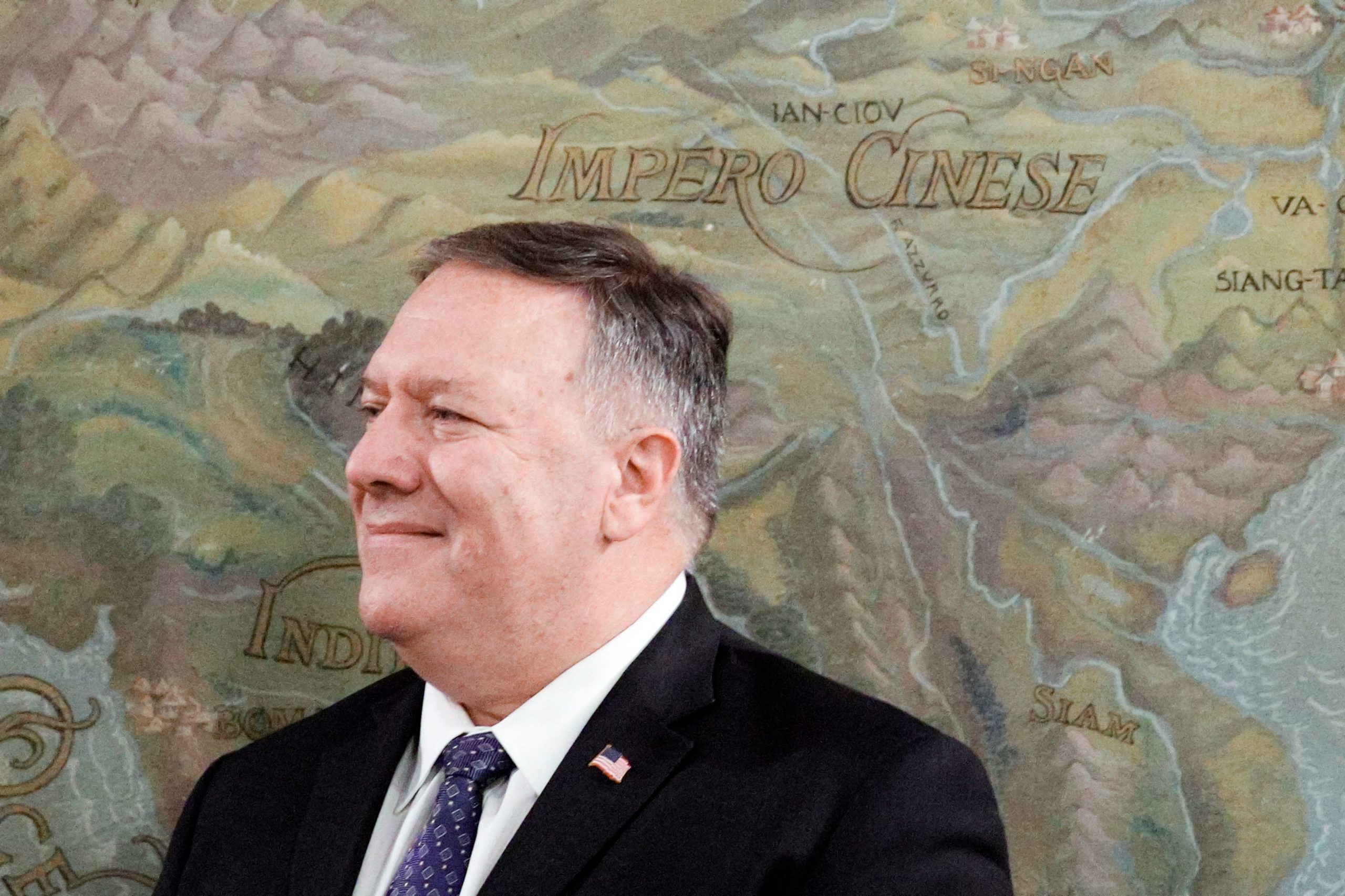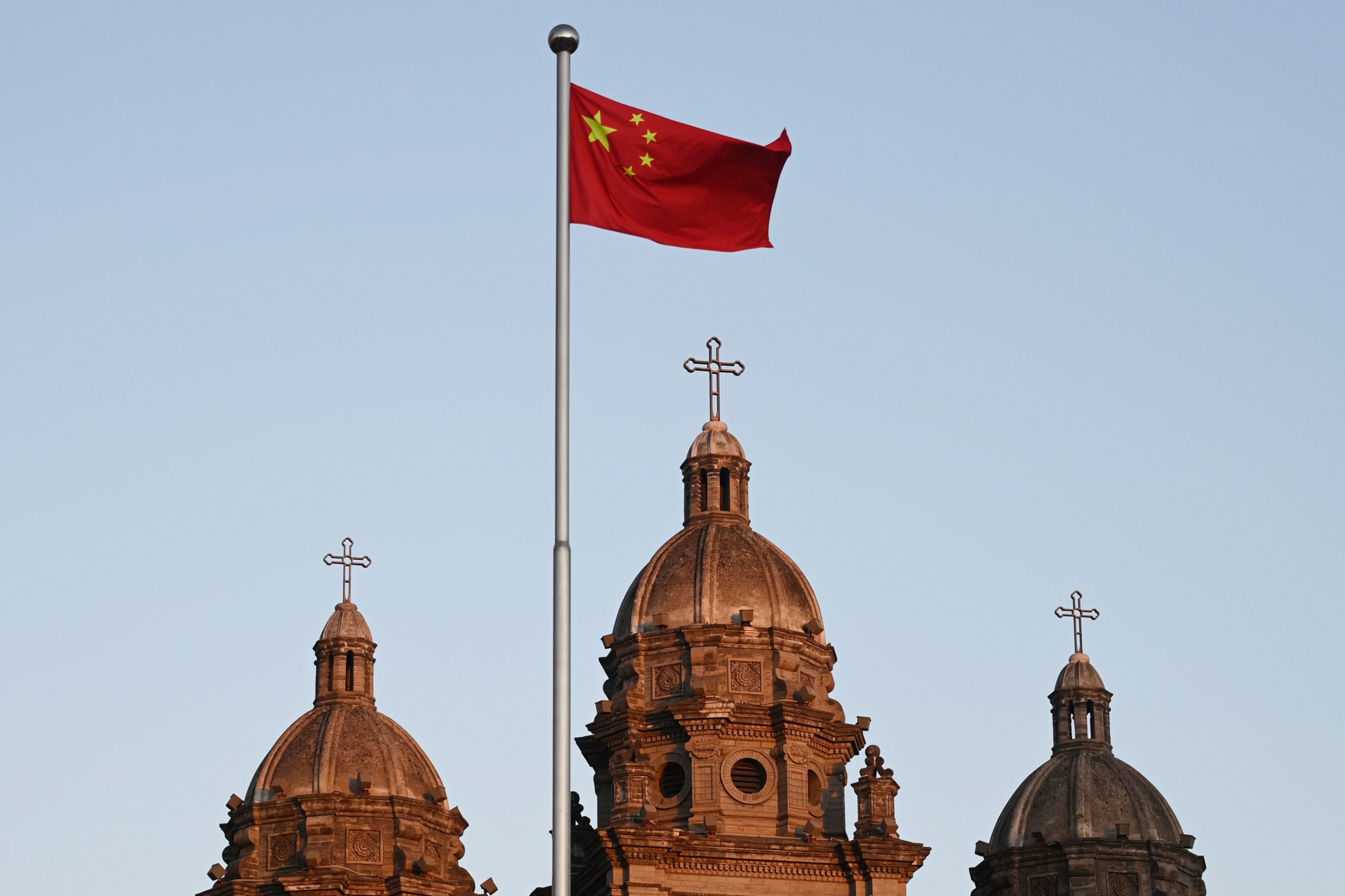The Vatican and China extended an agreement that allows Beijing to name bishops with approval from the pope, despite strong opposition from US officials who have voiced concern about human rights in China, numerous sources reported.
The Vatican and Beijing announced the renewal of the 2018 China-Vatican provisional agreement, which expired Thursday.
Critics have argued that the deal worsened religious freedom in China, according to Crux.
U.S. Secretary of State Mike Pompeo met with Vatican officials in early October after criticizing the Vatican for its plans to renew the agreement amid human rights concerns. The Vatican justified the extension by saying the agreement was only ecclesiastical and pastoral in nature, rather than political, according to the Associated Press. (RELATED: Mike Pompeo Meets With Vatican Officials To Discuss Relations With China Amid US Concern Over Beijing’s Crackdown On Religion)

US Secretary of State Mike Pompeo stands by an old map of China during a Mining, Agriculture, and Construction (MAC) Protocol Signing Ceremony at Villa San Sebastiano in Rome on October 1, 2020, as part of his two-day visit to Italy and The Vatican. (Photo by GUGLIELMO MANGIAPANE/POOL/AFP via Getty Images)
The 2018 agreement followed years of estrangement between the Vatican and China, especially after the split in diplomatic relations by Communist authorities and the Vatican in 1951. President Xi Jinping’s has also worked to “sinicize” China by cracking down on Christianity in an effort to “adapt” worshipers to “socialist society,” the Guardian reported. The agreement itself has never been published.
The director of the Holy See press office said in 2018 that the objective of the agreement was to allow the faithful to have bishops in communion with Rome while also being recognized by Chinese authorities.
In reference to the extension, the Vatican said that continued dialogue with Beijing would allow the Holy See to engage with China on issues like human rights abuses, according to the Associated Press. The Vatican newspaper L’Osservatore Romano said the Vatican “does not fail to attract the attention of the Chinese government to encourage a more fruitful exercise of religious freedom.”
Beijing foreign ministry spokesman Zhao Lijian told reporters Thursday that the decision between China and the Vatican came “after friendly consultations,” according to the Associated Press.
“The two sides will maintain close communication and consultations and continue to promote the process of improving relations,” he said.
Pompeo urged the Vatican to join the U.S. in denouncing China for violating religious freedom and other human rights, especially those of its minorities, during the visit in October. Christians in China have continued to face state retaliation, and the status of the church in China has worsened since 2018 according to a U.S. State Department report. A report released in 2020 by the United States Commission on International Religious Freedom found that the Chinese Communist Party was cracking down on religious practice in the country, including Catholicism.
“Authorities continued to arrest Christians and enforce more limitations on their activities, including requiring Christian churches to install surveillance cameras to enable daily police monitoring, and compelling members of house churches and other Christians to sign documents renouncing their Christian faith and church membership,” the report says.

The Chinese national flag flies in front of St Joseph’s Church, also known as Wangfujing Catholic Church, in Beijing on October 22, 2020, the day a secretive 2018 agreement between Beijing and the Vatican was renewed for another two years. (Photo by GREG BAKER/AFP via Getty Images)
Cardinal Joseph Zen had called the agreement an “incredible betrayal” that sent “the flock into the mouths of the wolves,” the Guardian reported in 2018.
Zen has argued that Francis is sympathetic toward communists because he is sympathetic toward the poor and, in Francis’s native Argentina, care for the poor is conflated with communism, given South America’s history of the rich and the military systematically oppressing the poor. This, Zen said, has led Francis to view communists with not only sympathy but optimism.


